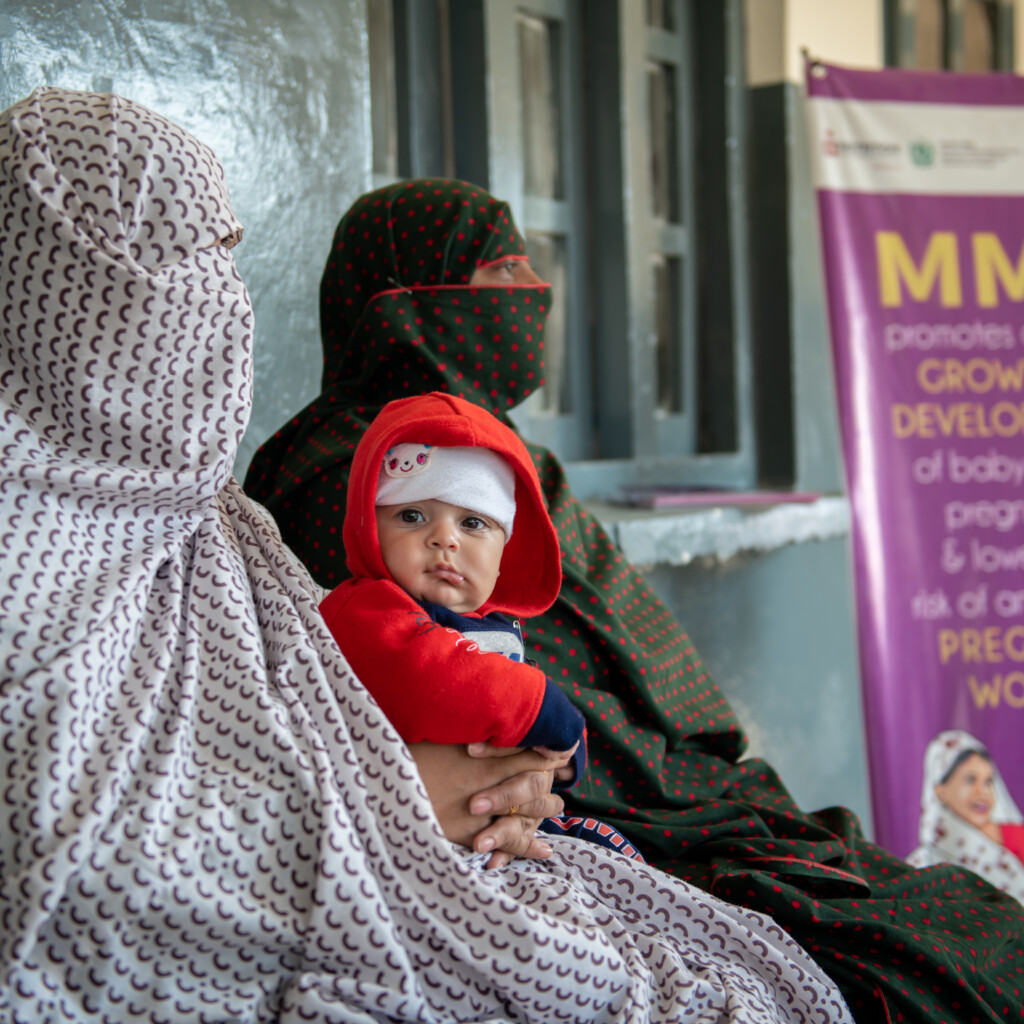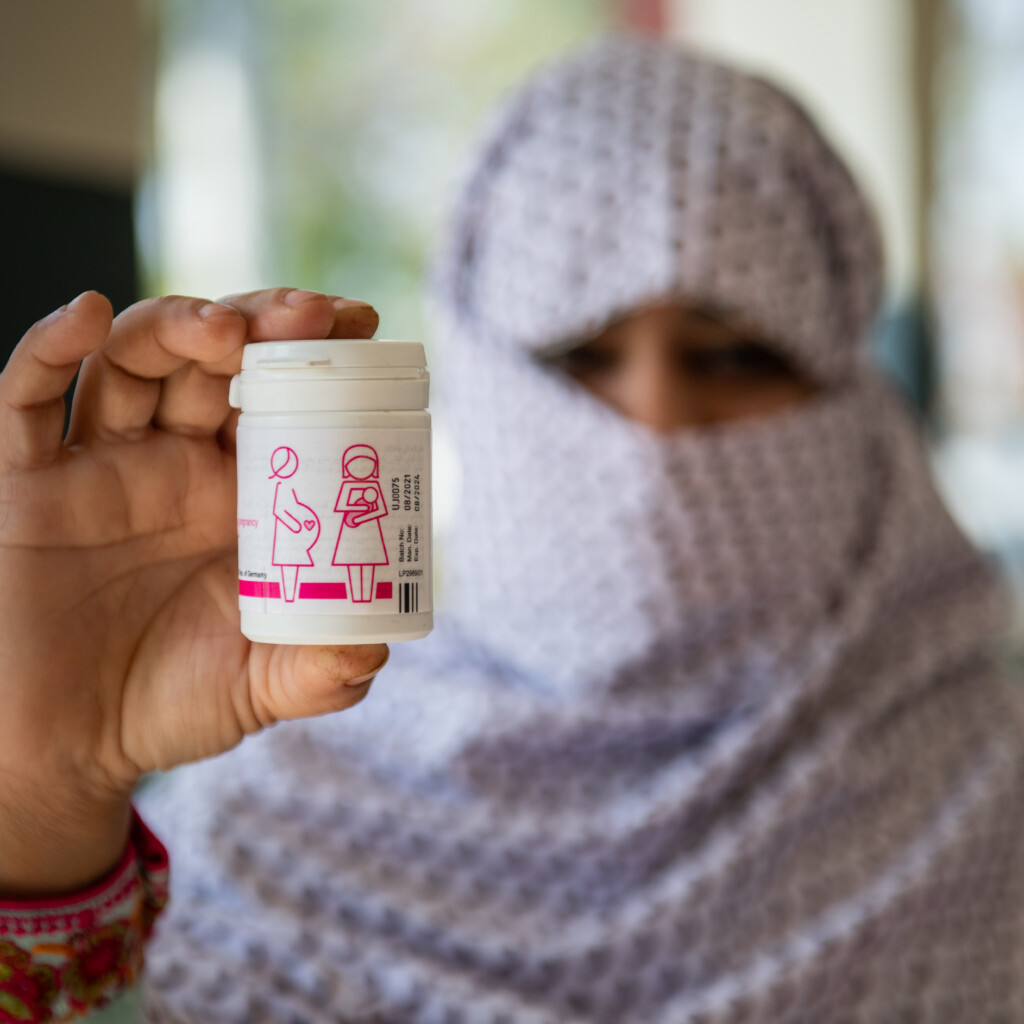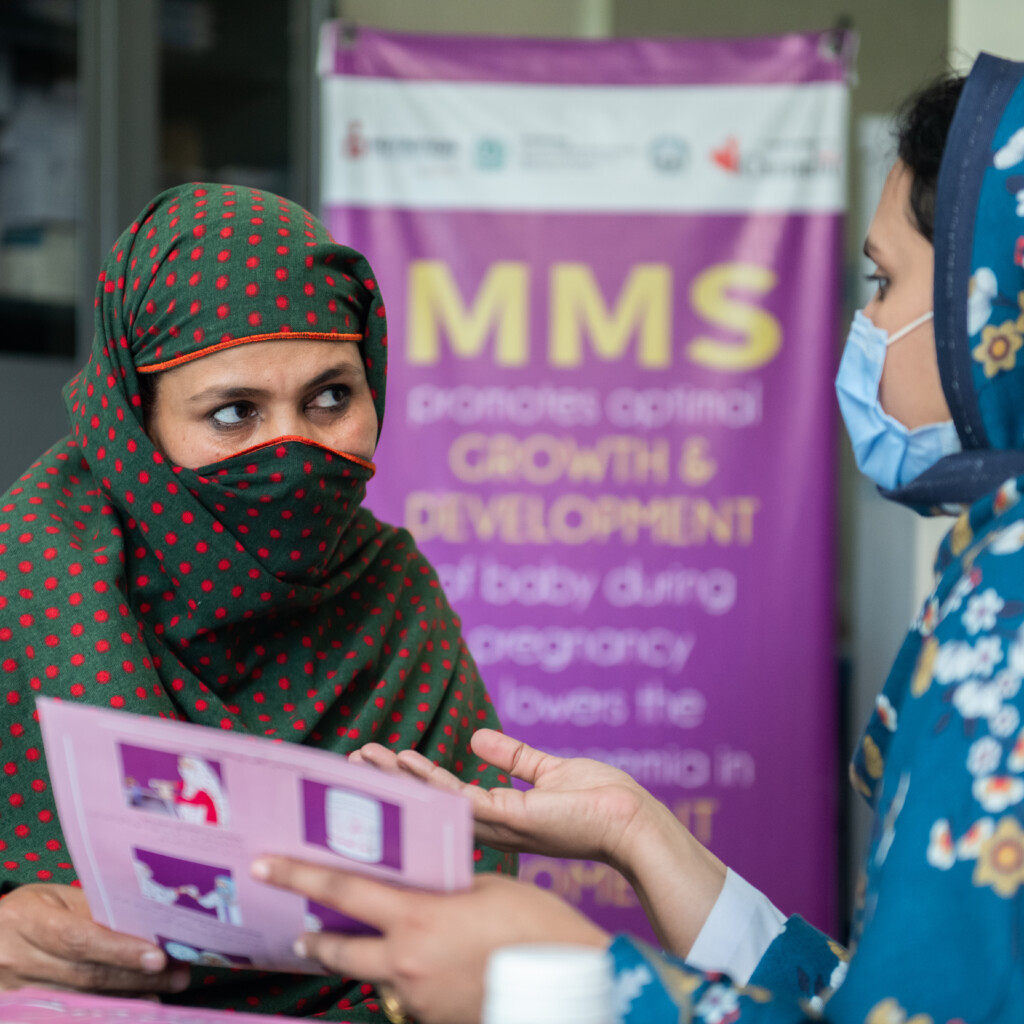We continued to assist governments to use the country-specific cost-effectiveness analyses in our MMS-Cost Benefit tool to support decision making around the costs and benefits of switching from iron and folic acid supplementation (IFA) to multiple micronutrient supplementation (MMS).
Last year, we focused on better understanding the adherence gap — the gap between the nutrition services and supplements received, compared to what is accepted and consumed during pregnancy — to help countries strengthen their maternal nutrition programs. Building upon the success of our ongoing implementation research in Pakistan, we partnered with the Government of Nigeria to support the transition from IFA to MMS and optimize uptake and adherence among pregnant women. In Pakistan, we conducted an adherence study in four provinces that informed a set of recommendations for improving policy, planning and programming that received endorsement from the nutrition wing of the Ministry of National Health Services Regulation and Coordination.
Continuing our efforts to strengthen the accessibility and quality of ANC provided through health systems, we are spearheading two implementation research projects in India with the support of state governments. The First 1,000 Days project will generate evidence on closing the “know–do gap” by addressing the service delivery barriers that hinder the implementation of essential nutrition actions. The Maternal IFA project will identify the barriers, bottlenecks and enablers for optimal adherence to IFA and calcium supplementation during pregnancy, one of the country’s long-standing programs. To support pregnant adolescents in receiving quality ANC, we launched the Building Rights for Improved Girls’ Health in Tanzania (BRIGHT) project, which utilizes youth-centered feminist and rights-based approaches to empower adolescents in the Tabora region to exercise their sexual and reproductive health and nutrition rights.
Recognizing that maternal and newborn health are inherently connected, we worked with governments to support the delivery of birth package interventions embedded in a broader package of maternal and newborn care, including delivery by skilled birth attendants, nutrition counselling, optimal timing of cord clamping, kangaroo mother care for small and vulnerable babies born and clean cord care with chlorhexidine.


